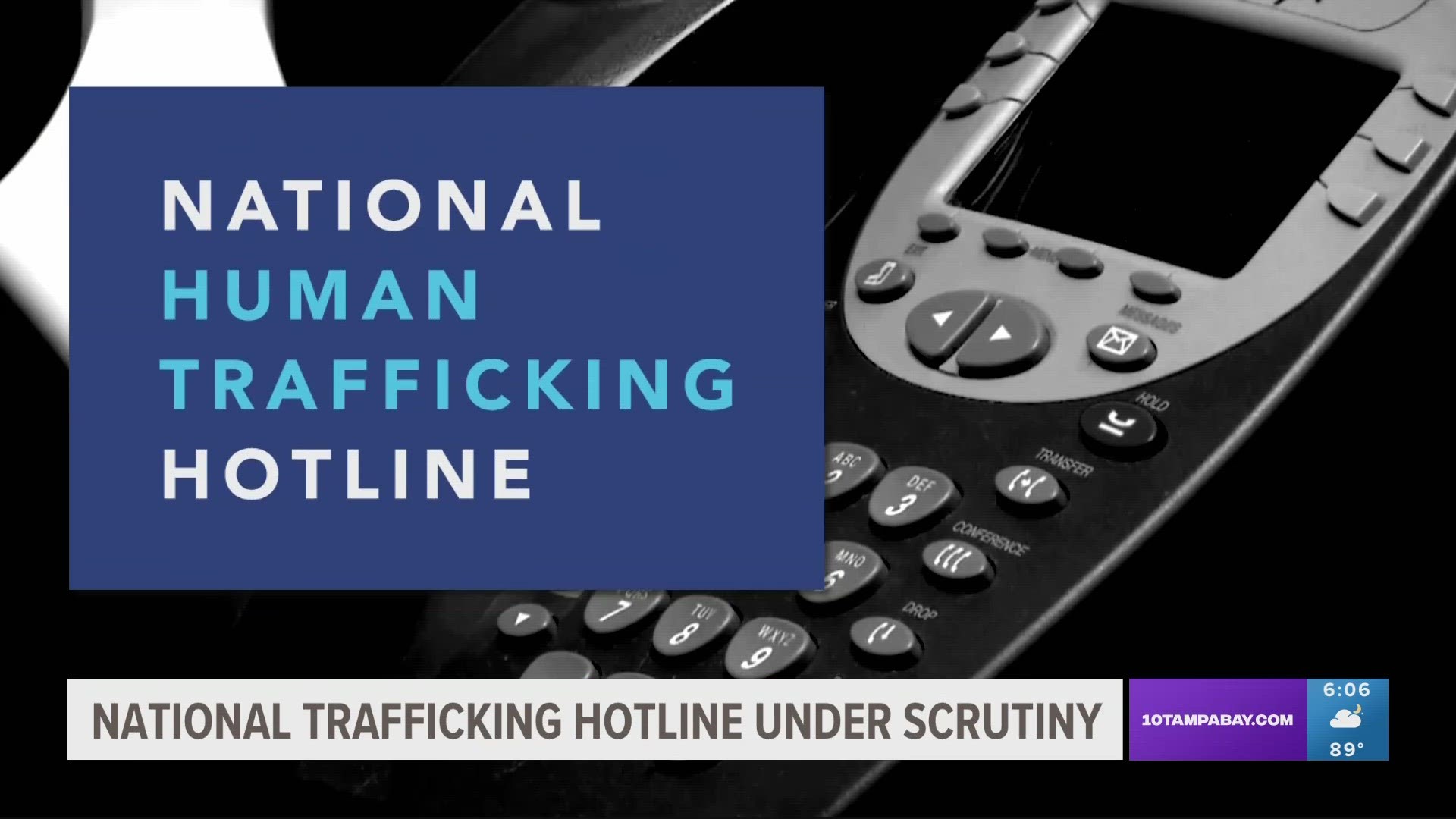ST. PETERSBURG, Fla. — It’s designed to be a lifeline but is the National Human Trafficking Hotline doing enough to help victims?
For Aubree Alles, it was a call to the hotline that ultimately saved her life. Created by Congress in 2007, she says it was a safe haven for her after being trapped for 10 years by her trafficker.
“It opened the door for me,” she said. “After I got out I needed services—where am I going to live—my whole life has been flipped so I was able to reach out to them for things like that.”
But now the non-profit Polaris Project, which operates the hotline, is under fire after dozens of attorneys general – including Florida’s Ashely Moody – took issue with its policy of not reporting every tip called in to law enforcement. The exception is if it involves minors, in situations where immediate and escalating violence can be heard or seen, or if the caller gives permission.
A bipartisan effort is now underway in Congress to change that. Florida Reps. Laurel Lee and Kathy Castor introduced legislation requiring the hotline to coordinate with state and local law enforcement agencies for every tip received.
“There's a universe of information that's very important information that they aren't currently passing on to law enforcement,” Lee told 10 Tampa Bay.
But the proposal is getting unlikely pushback.
Trafficking survivors like Alles say the proposal may seem well-meaning, even a no-brainer, but ultimately she worries it could have unintended consequences.
Alles recalls her own struggle to trust law enforcement when she was being trafficked – since she was arrested dozens of times for prostitution. If her calls were automatically reported to law enforcement then, she says she likely would’ve never picked up the phone.
“I think tip line, crime, law enforcement, I would automatically shut down,” she said. “I believe that if it's made mandatory that the number of calls will drop drastically.”
Her concerns are echoed by the Polaris Project, which says concerns are based on a "misunderstanding of the mission" of the hotline.
“The Trafficking Hotline is not primarily a law enforcement tip line,” Polaris said in a statement. “This is important because traffickers take consent, choice, and freedom away from victims. To effectively support survivors is to return to them control over their own lives and choices. When and if victims and survivors choose to involve law enforcement, the Trafficking Hotline supports the process every step of the way.”
Lee contends that’s not the original mission of the hotline.
“This hotline in particular is designed to be a really important tool for law enforcement,” she told 10 Tampa Bay.
Florida had the third-most calls in the nation to the National Human Trafficking Hotline in 2021, the most recent data available. The hotline received 2,894 tips from the state. Fewer than half were from victims of survivors.
To report cases of human trafficking or if you are victims seeking support, call the National Human Trafficking Hotline 888-373-7888. Florida also encourages people to call a state hotline that reports directly to local law enforcement 855-FLA-SAFE.

